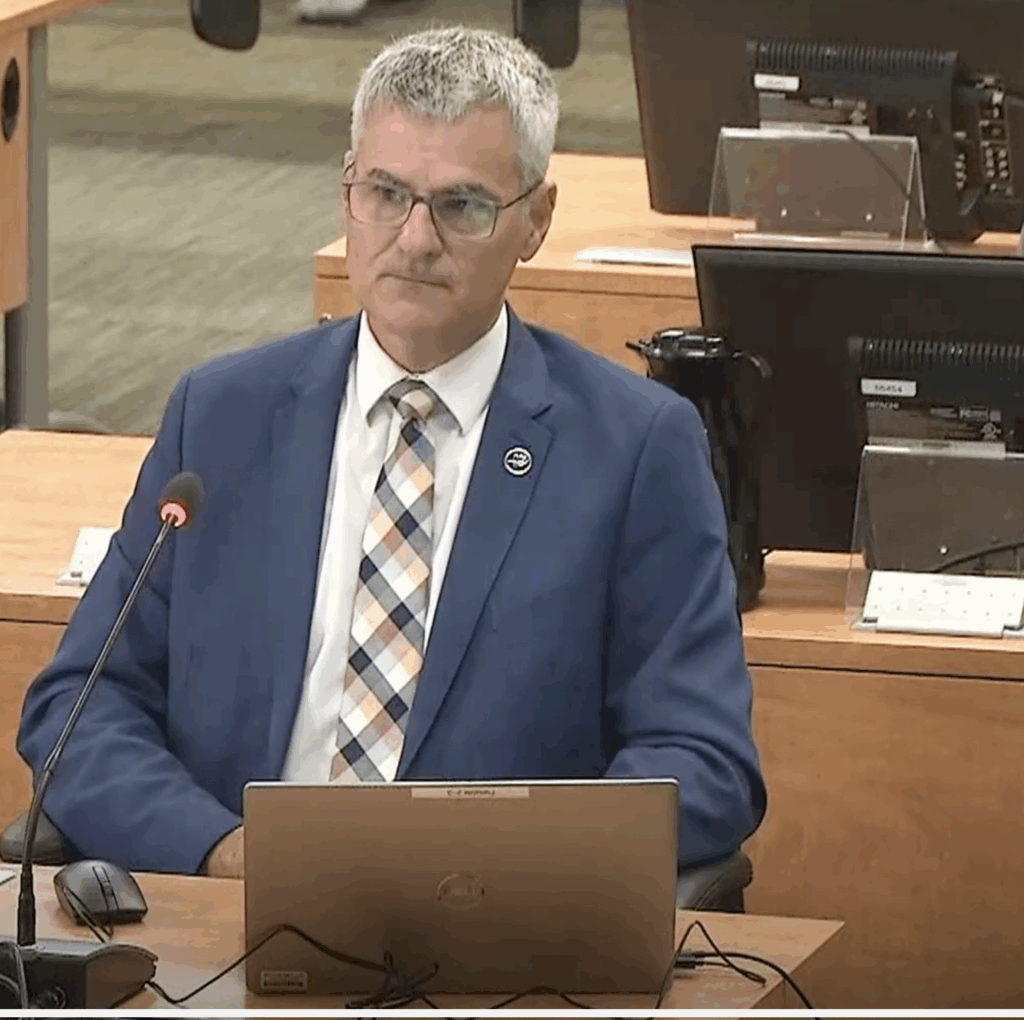Legault had no knowledge of SAAQClic overruns before AG report, commission hears
Legault had no knowledge of SAAQClic overruns before AG report, commission hears
Ruby Pratka, LJI reporter
editor@qctonline.com
MONTREAL – Premier François Legault knew nothing about the tens of millions of dollars in cost overruns incurred by the failed overhaul of the Société d’assurance automobile du Québec (SAAQ) online platform (SAAQClic) until the release of the auditor general’s report in February of this year. Legault repeatedly affirmed that when he testified under oath before the Gallant Commission in Montreal on Sept. 2.
The first indication Legault had that the project might have been running into difficulty, he testified, was when lines formed outside SAAQClic service points following the failed launch in February 2023.
Although Legault has sat in the National Assembly as CAQ leader since 2012 – well before the previous Liberal government signed the initial SAAQClic contract with a trio of third-party IT firms known as the Alliance – and served as premier since 2018, he testified that the SAAQ overhaul had never previously been on his radar. He testified that the province was coming out of “seven years of crisis – the COVID pandemic; the [surge in] temporary immigration which had an impact on services, housing and the French language in Montreal; the cost of living crisis” when the SAAQ debacle first drew lineups and headlines. “What’s going on at the SAAQ is a crisis but you can’t say it’s on the same scale as the pandemic.
“In February 2023, I was told there were lines. I was told we had closed the offices and reopened them without adding personnel and that’s what caused the lines. No one talked to me about [the cost overruns] until February 2025. Before that, I thought there was a launch problem and the launch problem had been solved,” he testified. During an interrogation that swung between deference and pugnacity, he later told chief prosecutor Simon Tremblay he wasn’t aware of the full amount of the contract until 2025 – even though, as previous testimony has laid out, senior civil servants had raised concerns as early as 2020. Then- cybersecurity minister Éric Caire was aware in 2021 that there had been “cost overrun and deadline problems for a long time,” according to an email presented as evidence.
The SAAQ is a Crown corporation with an autonomous governing board that operates at arm’s length from the government, but for which the Ministry of Transport and the Treasury Board have some oversight. Legault initially appeared to blame Transport Minister Geneviève Guilbault, the deputy premier and a longtime ally, and her predecessor François Bonnardel for the communications failure, without naming them. “The minister of digital transformation [Caire], the minister of finance [Eric Girard] and the Treasury Board are in advisory roles, but it is the role of the minister of transport to ensure that everything is done right. The minister and their team need to inform the other ministries and the premier’s office. In an ideal world, they would make sure everyone has the same information.”
He later tempered that assertion, stating that the SAAQ was responsible for keeping the ministers fully informed, implying the agency hadn’t lived up to that responsibility.
Legault and Tremblay sparred over the distinction between the cost of the contract and the project’s total cost before Legault conceded that “as a businessman, I think I would have asked more questions.”
Legault criticized the previous Liberal government, which he said had negotiated the contract without planning for cost overruns; the handling of the February 2023 customer service crisis; and the fact he had been kept in the dark for so long. He said it was “not normal” that he should be made aware of a $500-million cost overrun months after the fact. “Delegating to a Crown corporation does not mean not asking questions or not doing follow-up.” He reminded the commission that he had decided to call a public inquiry to shed light on the debacle after the auditor general’s report.
The commission also heard from Martin Koskinen, Legault’s longtime confidant and chief of staff, who said he was made aware of SAAQClic – or CASA, as it was then known – after the 2022 election, but that it was not considered a priority at that time, and didn’t appear on his radar until the failed 2023 rollout. He essentially absolved Guilbault, Bonnardel and Caire, placing responsibility squarely on the shoulders of the SAAQ. “How could the SAAQ have failed – how could they not have seen the potential risks?” he wondered aloud.
Later that week, the commission heard from senior SAAQ personnel, including Nadia Fournier, the agency’s government relations manager, who said she didn’t pre-verify information that was sent to her to be transmitted to Guilbault’s office, and that higher- ranking staff sometimes contacted officials directly without putting her “in the loop.” Other SAAQ witnesses laid out convoluted project management practices. Because of a lack of local expertise in the programming language needed for the platform, the commission heard, the agency hired programmers in India, who hadn’t been briefed on what the program was supposed to do, leading to confusing exchanges in French, English and programming code during which a lot seemed to be lost in translation.
“It was an immense project … and no one knew what we were going to do to make it work” within the timeline established, testified Marie- Claude Lemire, a SAAQ planner and project manager.
Commission hearings return to Quebec City this week.
Legault had no knowledge of SAAQClic overruns before AG report, commission hears Read More »


